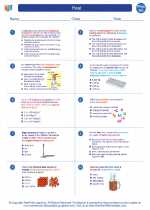Organs
Organs are collections of tissues with a specific function or functions. In the human body, there are several vital organs that perform essential roles in maintaining life. These organs are made up of different types of tissues, such as epithelial, connective, muscle, and nervous tissues. Each organ has a specific structure and function that contribute to the overall function of the body.
Types of Organs
There are several types of organs in the human body, each with its own unique structure and function. These include:
- Heart: The heart is a muscular organ that pumps blood throughout the body, supplying oxygen and nutrients to the tissues and removing waste products.
- Lungs: The lungs are responsible for the exchange of oxygen and carbon dioxide in the body through the process of respiration.
- Brain: The brain is the central organ of the nervous system and is responsible for controlling and coordinating the body's functions and activities.
- Liver: The liver performs a variety of critical functions, including detoxification, protein synthesis, and the production of bile for digestion.
- Kidneys: The kidneys are vital for the filtration of blood, regulation of electrolytes, and the production of urine.
- Stomach: The stomach is a digestive organ that breaks down food using acid and enzymes, preparing it for further digestion in the intestines.
Study Guide
Here are some key points to remember when studying the topic of organs:
- Understand the structure and function of each organ in the human body.
- Learn about the specific tissues that make up each organ and how they contribute to its function.
- Explore the interconnections between different organs and how they work together to maintain homeostasis.
- Study common disorders and diseases related to each organ and their effects on overall health.
- Review the importance of maintaining a healthy lifestyle to support the proper function of these organs.
By understanding the role of organs in the body and how they work together, you can gain valuable insight into human anatomy and physiology, as well as the importance of maintaining overall health and wellness.
.


